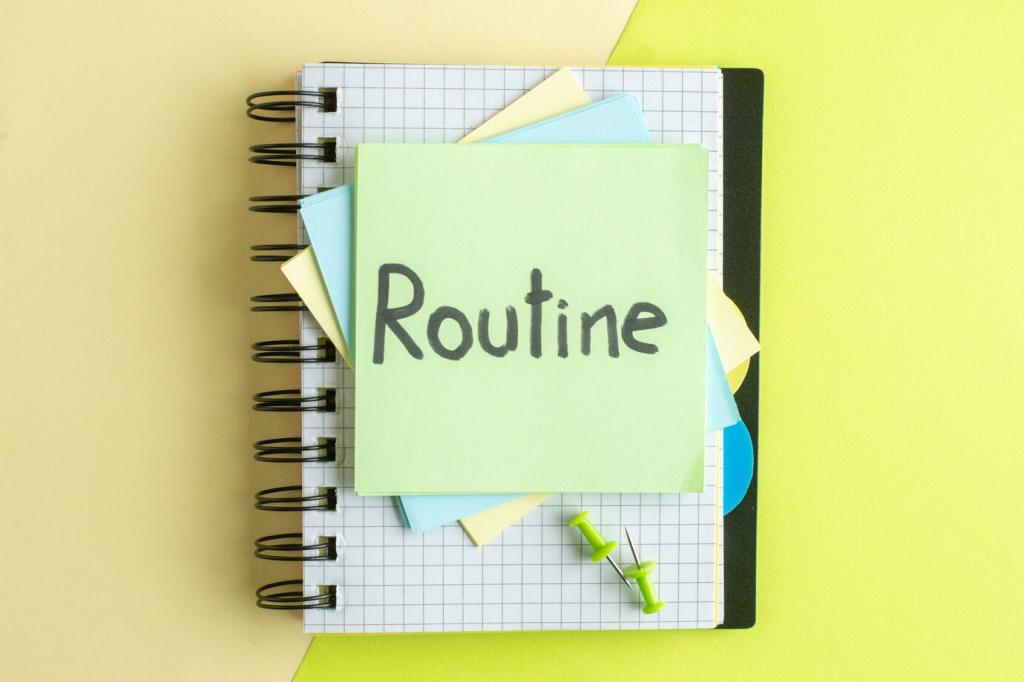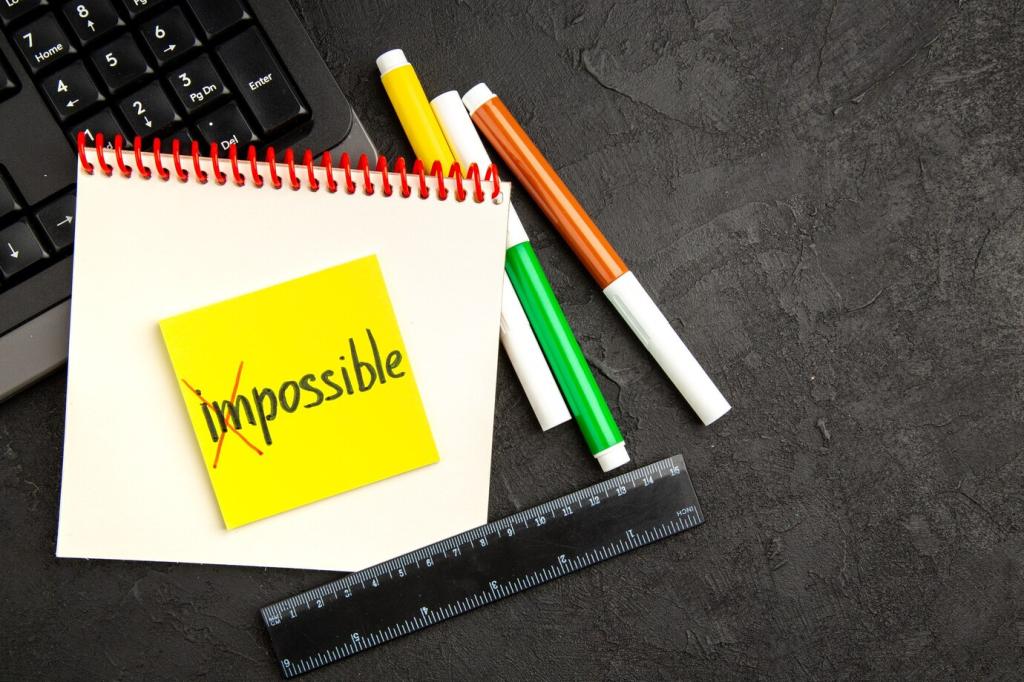Decode the Habit Loop: Cue, Routine, Reward
Track when your habit happens for a week and note time, location, emotional state, preceding action, and people present. Patterns will pop. Share your most common cue with us to inspire others and to anchor your new habit precisely.
Decode the Habit Loop: Cue, Routine, Reward
Shrink the action to the smallest version you cannot fail: two minutes of reading, one push-up, one line in a journal. Consistency grows confidence. Comment with your two-minute starter and commit to trying it tonight.
Decode the Habit Loop: Cue, Routine, Reward
Pair the routine with an immediate, satisfying reward: check a streak, sip favorite tea, or celebrate aloud. This taps dopamine’s learning signal. Tell us what instant reward helps your habit feel genuinely enjoyable, not grim.
Decode the Habit Loop: Cue, Routine, Reward
Lorem ipsum dolor sit amet, consectetur adipiscing elit. Ut elit tellus, luctus nec ullamcorper mattis, pulvinar dapibus leo.







